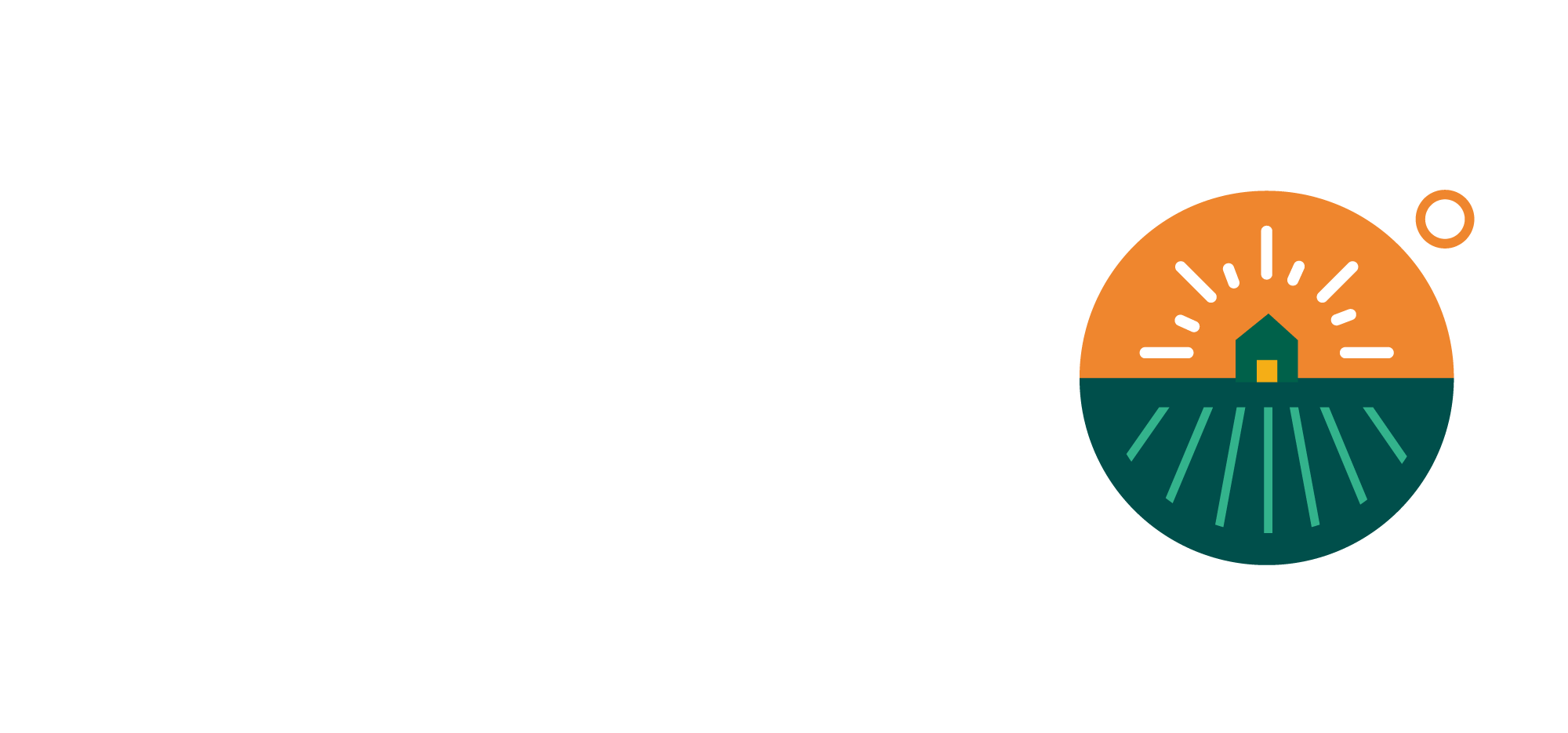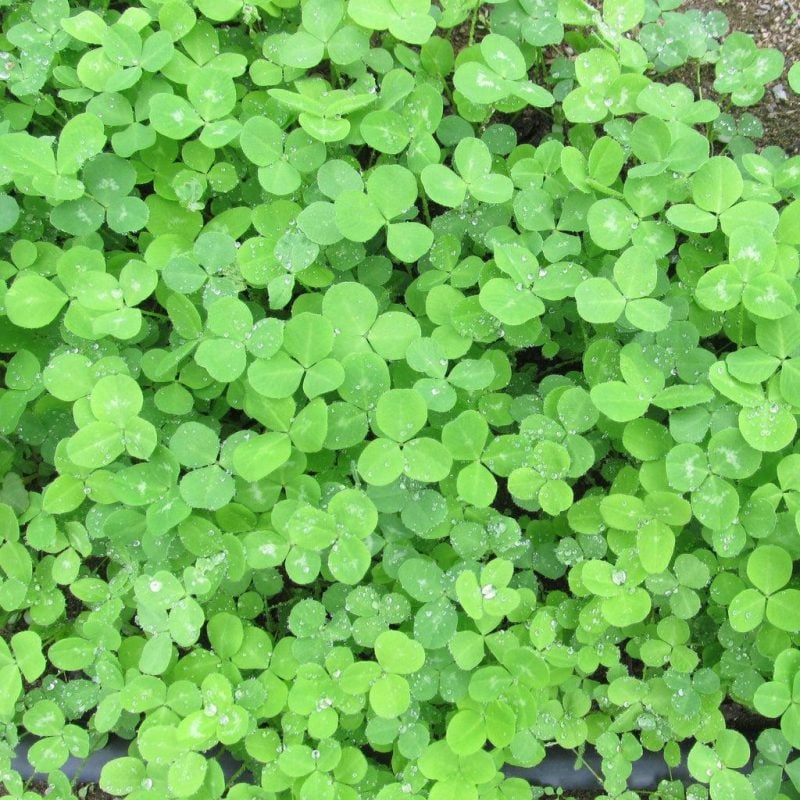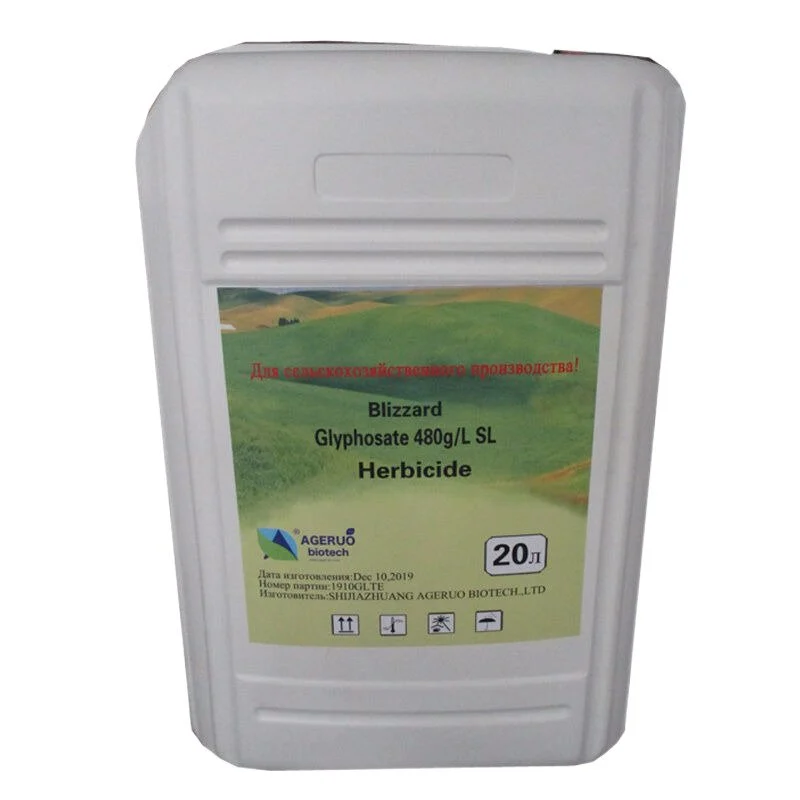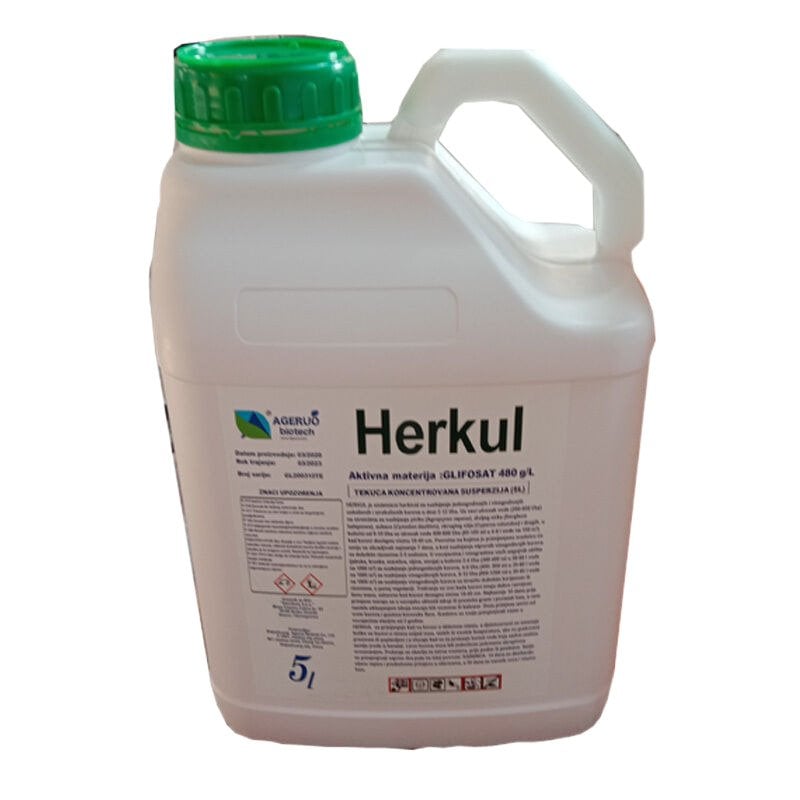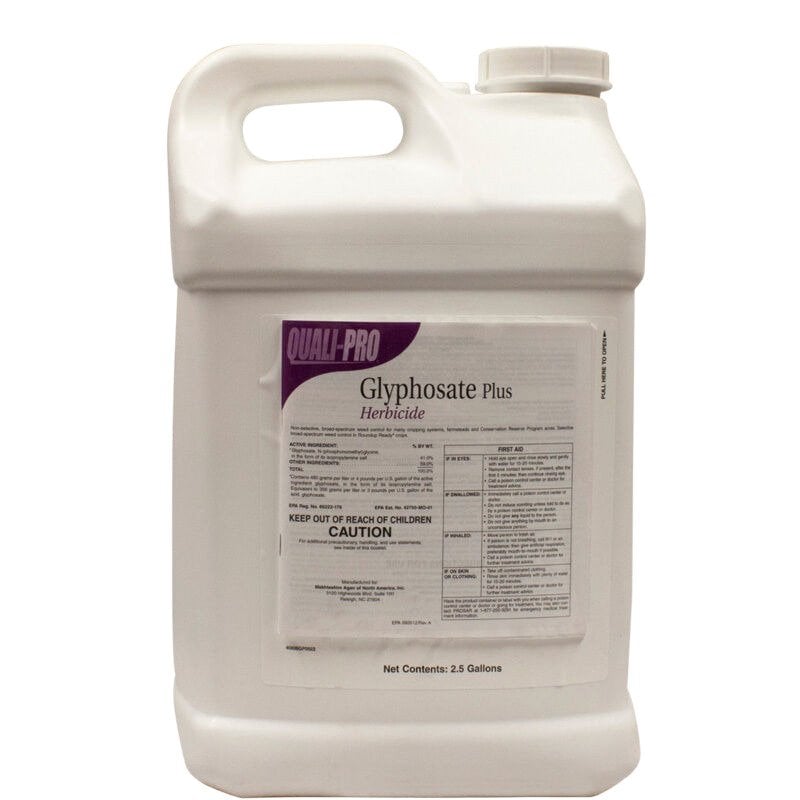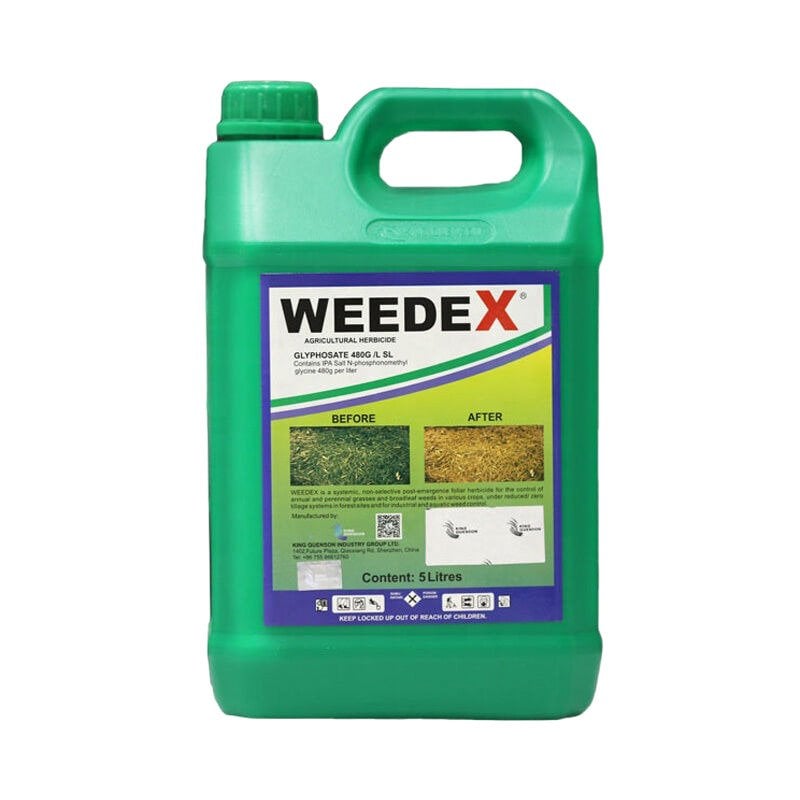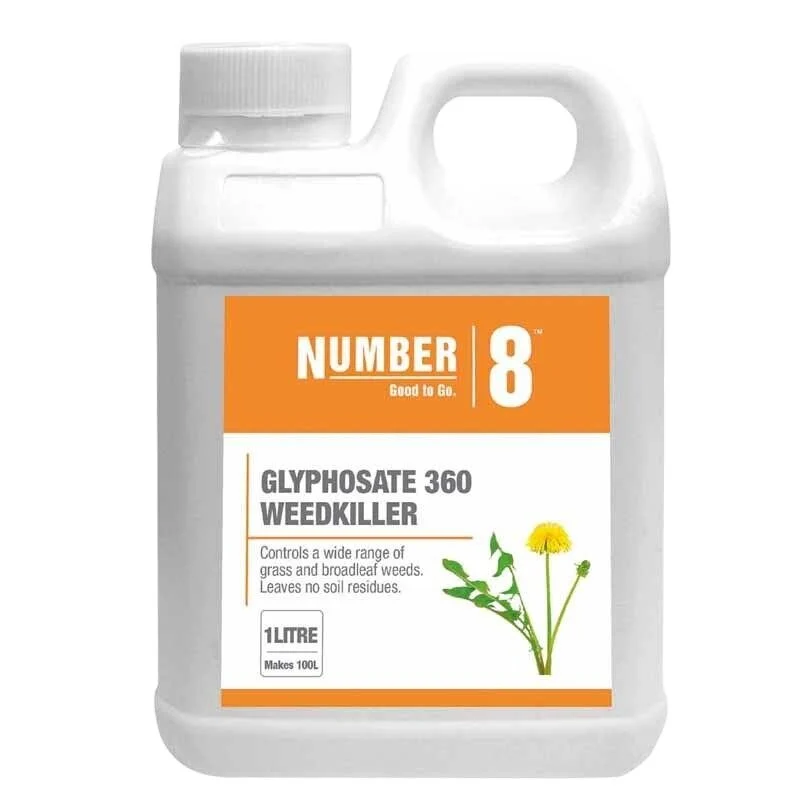Will Glyphosate Kill Clover? Complete Guide to Clover Control
Yes, glyphosate can effectively kill clover. As a non-selective herbicide, glyphosate is absorbed through the plant’s foliage, traveling down to the roots and inhibiting growth. This process eventually leads to the plant’s death. By using glyphosate correctly, you can effectively manage and control clover in both agricultural fields and lawns. However, understanding the right application techniques, timing, and concentration is crucial for optimal results.
What Is Clover? A Common Weed in Lawns and Fields
Clover is an herbaceous plant belonging to the legume family (Leguminosae). It’s a common sight in temperate and subtropical regions and is recognizable by its characteristic three-leaflets. Clover’s ability to fix nitrogen in the soil—by forming a symbiotic relationship with rhizobacteria—makes it a useful plant for improving soil fertility. However, when clover spreads uncontrollably, it can become a nuisance in lawns, gardens, and agricultural fields.
Clover’s Growing Environment and Common Locations
- Habitat: Clover thrives in moist, fertile soils, typically found in meadows, farmlands, gardens, roadside areas, and parks. It prefers areas with full sunlight.
- Common Crops: Clover is commonly found in lawns, pastures, fields, and agricultural areas. Due to its nitrogen-fixing ability, it is often planted as a green manure crop in crop rotation systems—especially in cereal, vegetable, and fruit tree production.
When Clover Becomes a Problem
While clover is often regarded as a beneficial plant for its role in soil enrichment, it can become invasive. In fields or lawns, its vigorous growth can compete with other crops for vital resources such as water, nutrients, and space, especially in wheat, corn, soybeans, grapes, and vegetable gardens.
Glyphosate: The Effective Herbicide for Clover Control
Glyphosate is one of the most widely used non-selective herbicides. This means it can kill virtually any green plant it comes in contact with, including clover. Glyphosate works by inhibiting an enzyme (EPSP synthase) essential for producing amino acids in plants. Without these amino acids, the plant is unable to grow properly and eventually dies.
Why Glyphosate Is So Effective for Clover Control
- Broad-Spectrum Control: Glyphosate kills a wide range of weeds, including perennial and annual weeds like clover, dandelions, plantain, and more.
- Easy to Use: It’s typically applied as a liquid herbicide, making it simple to mix, apply, and target specific areas.
- Low Environmental Impact: Glyphosate breaks down quickly in the soil and does not easily accumulate in water bodies, making it safer for the environment compared to some other herbicides.
Glyphosate Application in Agriculture and Lawn Care
Glyphosate is commonly used in agriculture, gardens, and lawns to manage weeds, including clover. It is particularly effective in grain fields, bean crops, vegetables, and fruit orchards where controlling weeds without harming the crops is critical.
How to Use Glyphosate for Clover Control: Application Tips
For effective clover control in lawns and agricultural fields, glyphosate should be applied correctly. The right application time, concentration, and technique ensure optimal results and minimize the risk of harming desirable plants.
1. When to Apply Glyphosate for Clover Control
- Timing: Glyphosate is most effective when applied during spring or fall when clover is actively growing. The plant’s leaves are more tender, which allows for better absorption of the herbicide.
- Avoid Cold or Dry Conditions: Glyphosate’s effectiveness decreases in dry or cold weather. Always ensure the weather conditions are favorable for herbicide absorption.
2. Glyphosate Concentration and Dosage for Clover
The recommended dosage is typically 2-4 ounces of 41% glyphosate per gallon of water. This concentration is effective for most lawn and field applications. However, you can adjust the concentration depending on the severity of the clover infestation.
3. Spraying Techniques for Glyphosate
- Direct Spray: Apply glyphosate directly onto clover in lawns or agricultural fields. Ensure the spray covers the clover leaves evenly. Be careful not to spray desirable plants, especially those you want to keep.
- Targeted Application: Use a sprayer or spray gun to direct the herbicide precisely onto the clover, minimizing damage to surrounding plants.
Effectiveness of Glyphosate in Killing Clover
Glyphosate is generally very effective in killing clover, but depending on the size of the infestation, a second application may be required. For denser clover populations, a follow-up treatment will ensure complete eradication.
Precautions When Using Glyphosate
- Non-Selective Nature: Glyphosate is a non-selective herbicide, which means it can kill any plant it contacts. Be cautious when applying it near valuable crops or beneficial plants.
- Avoid Overuse: Excessive use of glyphosate can lead to herbicide resistance in weeds. It’s important to rotate herbicide types or use in combination with other methods to maintain its efficacy.
Alternatives to Glyphosate for Clover Control
If you prefer to avoid glyphosate or are looking for alternatives, here are a few options:
- Selective Herbicides: Products like 2,4-D target broadleaf plants like clover without harming grasses. This is ideal for lawns or certain agricultural crops.
- Physical Control: Methods such as hand-weeding, mowing, or using a weed whacker can help control small patches of clover.
- Organic Herbicides: Natural alternatives like vinegar-based or citric acid-based herbicides can be effective for small-scale applications, particularly in home gardens.
Conclusion: Glyphosate and Clover Control
In conclusion, glyphosate is a powerful, non-selective herbicide that works well for controlling clover and many other common weeds. Its ability to disrupt plant metabolism by inhibiting key enzymes makes it highly effective in eliminating unwanted plants. However, as with any herbicide, it should be used with care to ensure correct application timing, concentration, and techniques. When used properly, glyphosate can be an invaluable tool for maintaining healthy, weed-free lawns, agricultural fields, and gardens.
Yes, glyphosate can effectively kill clover. As a non-selective herbicide, glyphosate is absorbed through the plant’s foliage, traveling down to the roots and inhibiting growth. This process eventually leads to the plant’s death. By using glyphosate correctly, you can effectively manage and control clover in both agricultural fields and lawns. However, understanding the right application techniques, timing, and concentration is crucial for optimal results.
What Is Clover? A Common Weed in Lawns and Fields
Clover is an herbaceous plant belonging to the legume family (Leguminosae). It’s a common sight in temperate and subtropical regions and is recognizable by its characteristic three-leaflets. Clover’s ability to fix nitrogen in the soil—by forming a symbiotic relationship with rhizobacteria—makes it a useful plant for improving soil fertility. However, when clover spreads uncontrollably, it can become a nuisance in lawns, gardens, and agricultural fields.
Clover’s Growing Environment and Common Locations
- Habitat: Clover thrives in moist, fertile soils, typically found in meadows, farmlands, gardens, roadside areas, and parks. It prefers areas with full sunlight.
- Common Crops: Clover is commonly found in lawns, pastures, fields, and agricultural areas. Due to its nitrogen-fixing ability, it is often planted as a green manure crop in crop rotation systems—especially in cereal, vegetable, and fruit tree production.
When Clover Becomes a Problem
While clover is often regarded as a beneficial plant for its role in soil enrichment, it can become invasive. In fields or lawns, its vigorous growth can compete with other crops for vital resources such as water, nutrients, and space, especially in wheat, corn, soybeans, grapes, and vegetable gardens.
Glyphosate: The Effective Herbicide for Clover Control
Glyphosate is one of the most widely used non-selective herbicides. This means it can kill virtually any green plant it comes in contact with, including clover. Glyphosate works by inhibiting an enzyme (EPSP synthase) essential for producing amino acids in plants. Without these amino acids, the plant is unable to grow properly and eventually dies.
Why Glyphosate Is So Effective for Clover Control
- Broad-Spectrum Control: Glyphosate kills a wide range of weeds, including perennial and annual weeds like clover, dandelions, plantain, and more.
- Easy to Use: It’s typically applied as a liquid herbicide, making it simple to mix, apply, and target specific areas.
- Low Environmental Impact: Glyphosate breaks down quickly in the soil and does not easily accumulate in water bodies, making it safer for the environment compared to some other herbicides.
Glyphosate Application in Agriculture and Lawn Care
Glyphosate is commonly used in agriculture, gardens, and lawns to manage weeds, including clover. It is particularly effective in grain fields, bean crops, vegetables, and fruit orchards where controlling weeds without harming the crops is critical.
How to Use Glyphosate for Clover Control: Application Tips
For effective clover control in lawns and agricultural fields, glyphosate should be applied correctly. The right application time, concentration, and technique ensure optimal results and minimize the risk of harming desirable plants.
1. When to Apply Glyphosate for Clover Control
- Timing: Glyphosate is most effective when applied during spring or fall when clover is actively growing. The plant’s leaves are more tender, which allows for better absorption of the herbicide.
- Avoid Cold or Dry Conditions: Glyphosate’s effectiveness decreases in dry or cold weather. Always ensure the weather conditions are favorable for herbicide absorption.
2. Glyphosate Concentration and Dosage for Clover
The recommended dosage is typically 2-4 ounces of 41% glyphosate per gallon of water. This concentration is effective for most lawn and field applications. However, you can adjust the concentration depending on the severity of the clover infestation.
3. Spraying Techniques for Glyphosate
- Direct Spray: Apply glyphosate directly onto clover in lawns or agricultural fields. Ensure the spray covers the clover leaves evenly. Be careful not to spray desirable plants, especially those you want to keep.
- Targeted Application: Use a sprayer or spray gun to direct the herbicide precisely onto the clover, minimizing damage to surrounding plants.
Effectiveness of Glyphosate in Killing Clover
Glyphosate is generally very effective in killing clover, but depending on the size of the infestation, a second application may be required. For denser clover populations, a follow-up treatment will ensure complete eradication.
Precautions When Using Glyphosate
- Non-Selective Nature: Glyphosate is a non-selective herbicide, which means it can kill any plant it contacts. Be cautious when applying it near valuable crops or beneficial plants.
- Avoid Overuse: Excessive use of glyphosate can lead to herbicide resistance in weeds. It’s important to rotate herbicide types or use in combination with other methods to maintain its efficacy.
Alternatives to Glyphosate for Clover Control
If you prefer to avoid glyphosate or are looking for alternatives, here are a few options:
- Selective Herbicides: Products like 2,4-D target broadleaf plants like clover without harming grasses. This is ideal for lawns or certain agricultural crops.
- Physical Control: Methods such as hand-weeding, mowing, or using a weed whacker can help control small patches of clover.
- Organic Herbicides: Natural alternatives like vinegar-based or citric acid-based herbicides can be effective for small-scale applications, particularly in home gardens.
Conclusion: Glyphosate and Clover Control
In conclusion, glyphosate is a powerful, non-selective herbicide that works well for controlling clover and many other common weeds. Its ability to disrupt plant metabolism by inhibiting key enzymes makes it highly effective in eliminating unwanted plants. However, as with any herbicide, it should be used with care to ensure correct application timing, concentration, and techniques. When used properly, glyphosate can be an invaluable tool for maintaining healthy, weed-free lawns, agricultural fields, and gardens.
